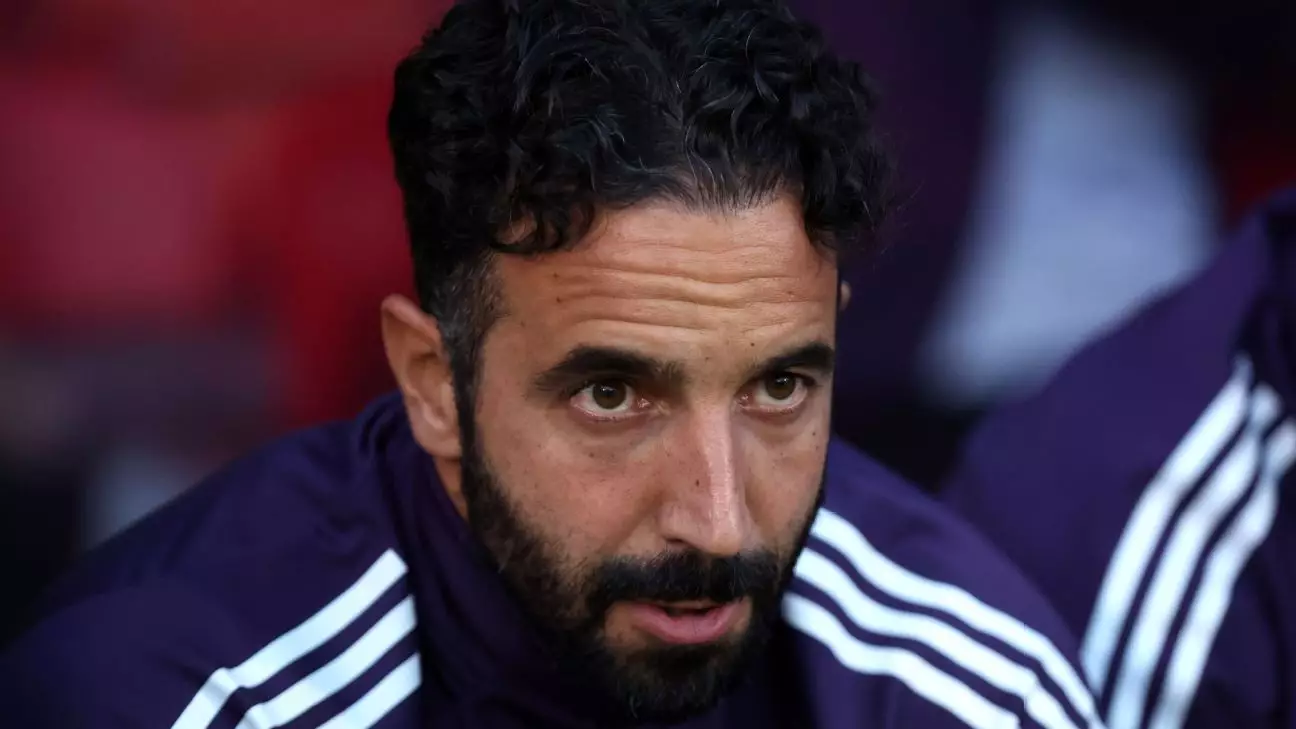Manchester United finds itself at a critical crossroads, grappling with a series of setbacks that threaten to diminish its storied legacy. Under Ruben Amorim’s stewardship, the club has struggled to find consistency, exemplified by a modest tally of just seven victories in 29 league matches since his appointment. The recent humiliating exit from the Carabao Cup at the hands of a fourth-tier team, Grimsby Town, underscored the depth of the challenges facing the Portuguese coach. It’s not just about poor results; it’s about a palpable loss of confidence and a club culture in flux. Fans and management alike are beginning to question whether Amorim can steer this ship back on course or if this upheaval marks the beginning of a more profound transformation.
The Weight of Expectations and the Pressure of Results
Manchester United’s illustrious history breeds an expectation of immediate success, yet the current squad appears lacking in cohesion and confidence. Since Amorim’s arrival, the team’s performance has been inconsistent, with only a handful of wins, coupled with a series of uninspiring displays. The club’s 15th-place finish last season was their woefist since relegation in 1974, a stark reminder of how far the Red Devils have fallen. Moreover, the failure to qualify for European competitions this year—highlighted by the Europa League final loss—adds to the growing sense of disappointment. While club leadership remains outwardly supportive, whispers of dissatisfaction are growing louder, especially after the recent cup exit and a draw in their opening Premier League fixtures.
Amorim’s Future — Between Confidence and Doubt
Despite the setbacks, Manchester United’s hierarchy appears reluctant to make hasty decisions, trusting Amorim’s potential and their long-term vision. Yet, the emotional and candid comments made by the coach after the Grimsby defeat—where he emphasized that “something has to change”—serve as a stark indication of internal tension. He is scheduled to hold a press conference amid mounting speculation about his tenure. Rumors swirl that another poor result against Burnley could act as a tipping point, forcing the club to reconsider their options. The fact that Amorim sought assurances earlier in the year highlights the fragile nature of his position; he was keen to lead from the start, but circumstances have made that goal more uncertain.
The Transfer Window and Squad Rebuilding
Adding to the turmoil, United’s ongoing transfer strategy reveals a club trying to stabilize amidst chaos. The focus on offloading underperformers like Jadon Sancho, Tyrell Malacia, and Antony points to deeper squad issues, with solutions seemingly overdue. The club’s efforts to strike late deals for Garnacho and Antony with Chelsea and Betis reflect a belief that squad adjustments could help salvage a difficult season. Meanwhile, Rasmus Højlund’s continued sidelining hints at internal disagreements or tactical shifts that have yet to bear fruit. The player exodus could serve as a wake-up call for the squad’s broader issues—lack of morale, tactical instability, or a disconnect between management and players.
The Path Forward — Can United Rewrite Their Narrative?
The question hanging over Old Trafford is whether Ruben Amorim can overcome these obstacles and restore Manchester United’s competitive stature. It’s a test of resilience, tactical ingenuity, and leadership under pressure. Though the club’s decision-makers remain cautious, history suggests that underperformance can prompt radical changes, especially at a club with the global expectations that Manchester United commands. The upcoming fixtures, starting with the Burnley game, will be pivotal. If United capitulates again, it will further deepen the crisis, potentially accelerating changes at the managerial level.
In the end, Manchester United’s future hinges on more than just results; it depends on the club’s ability to rebuild confidence and align its strategic vision with a clear tactical philosophy. Amorim’s task is monumental, and whether he can rise to meet it is the ultimate question that will define his tenure—and perhaps, the club’s direction for years to come.

